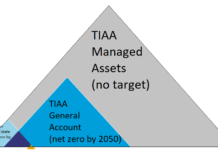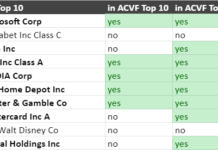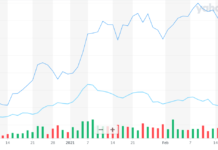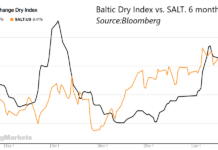Stocks may be expensive now, and the temptation is to buy before they get even more expensive. Why patience makes the brokerage account golden.
Tom Konrad, Ph.D., CFA
On Friday, I started a series on stocks I’d like to buy when they are cheaper. The first was on clean or efficient transport stocks which will benefit from both Climate Change regulation and high oil prices due to Peak Oil. Before I continue on with my Clean Energy Shopping List series, I think it’s worth talking about the underlying strategy, since it can be counter-intuitive, and I expect that many readers may have some objections. So here’s a FAQ about my strategy.
Q: Most people think that the stimulus will work and the economy is getting back on track. Why should I trust your judgment that this is a bear market rally?
Market prognosticators are notoriously bad at predicting the markets. This is not surprising, since part of what causes high levels of stock market valuation is lots of people buying because they think the market will continue to go up. I tend to think of what "most people" think as a contrarian indicator.
That’s not to say I’m right with any certainty, but I have reasons. Right now both the consumer and companies are tightening their belts. Although the stimulus package may boost Clean Energy, for the overall economy, I feel it’s likely only to lessen the blow. Companies are looking to raise money through IPOs and share offerings, while the US personal savings rate has increased substantially. Meanwhile, governments are issuing unprecedented amounts of debt to pay for stimulus packages and recession induced budget deficits.
With consumers paying down debt and the government and companies soaking up cash, where is all the new money going to come from to buy stocks and keep driving them up?
Q: What if I miss out on a big bull run? I need to make back my losses from 2008 in order to retire/send my kids to college/take that vacation.
The stock market does not take your needs and wants into account. The market is decidedly not fair, and if you make investment decisions based on your needs, you clearly are not paying attention to the true forces that guide the market. After 2008, unprecedented numbers of retired people are going back to work because they can no longer afford to be retired. Do you think the market paid any attention to their needs? Do you think that it is going to pay any attention to yours?
The only one looking out for your needs is you. Not your mutual fund manager, not Jim Cramer, and quite possibly not your financial advisor. Looking out for your own needs involves making hard decisions, getting some exercise when you’d rather be eating pork rinds on the couch with your DVR.
Q: I’ve heard that it makes no sense to time the market, because nearly all the market gains come from just a few short periods. If I miss those periods, I miss out on all the gains.
See the question above… thinking only about what you’re missing out on is a sure way to get into trouble. Stop an consider what might be gained by missing out on the worst periods. Consider this chart of the percentage annual returns from 1825-2008. The six highest returns were all in the 60% range, meaning that if you’d missed those six years, you would have less than 1/16 as much money as someone who had stayed in the market for the whole period. However, the six lowest returns are two -50% returns, one -40% return, and three -30% returns. If you’d missed those worst years, you’d have twenty times as much money than you’d have had if you had stayed in the market for the whole period.
We have to assume that we don’t have perfect foresight, but even if we miss as many good years as we miss bad years, we still come out ahead. If we miss both the best and worst year over the period, we end up up 25% over where we’d otherwise have been. If we miss three each of such good and bad years, we end up 62%, if we miss all six of each, we end up up 15%. In other words, the bad years are a lot worse than the good years are good, and we only have to miss the extremes to come out ahead. If we’re even slightly better than that, i.e. missing five good years for every six bad ones, the potential gains are enormous. The same will hold true for potential monthly, or daily returns, since most of us are not investing to a 200 year time horizon, but a 200 month (12 year) time horizon is something we might be thinking about.
These returns are more impressive when you consider that the average annual return for the period was significantly positive: Skipping any 12 random years would ordinarily produce worse, not better, returns. Also, when not in the market, you could place your money in short term treasury bills or a money market fund, and have earned interest, which would also add up over twelve skipped years.
In other words, if the market is likely to be unstable, it makes sense to get out, even if that means you might miss a big rally.
DISCLAIMER: The information and trades provided here and in the comments are for informational purposes only and are not a solicitation to buy or sell any of these securities. Investing involves substantial risk and you should evaluate your own risk levels before you make any investment. Past results are not an indication of future performance. Please take the time to read the full disclaimer here.








